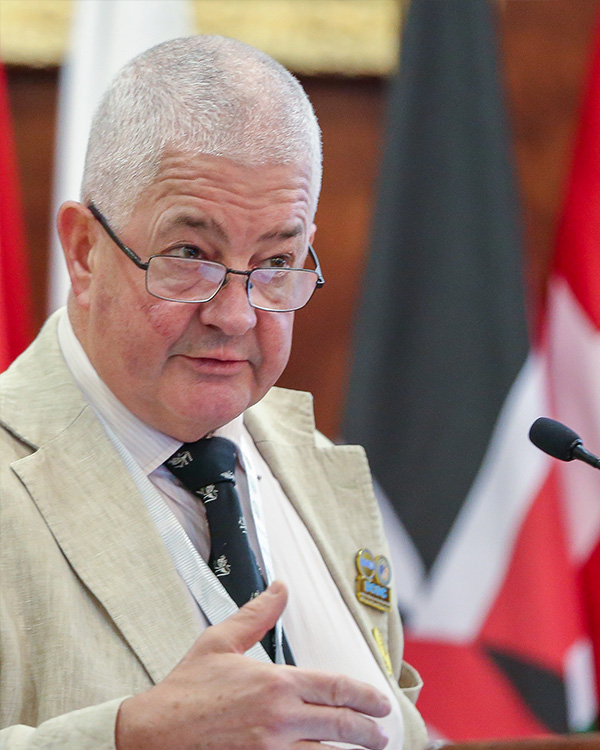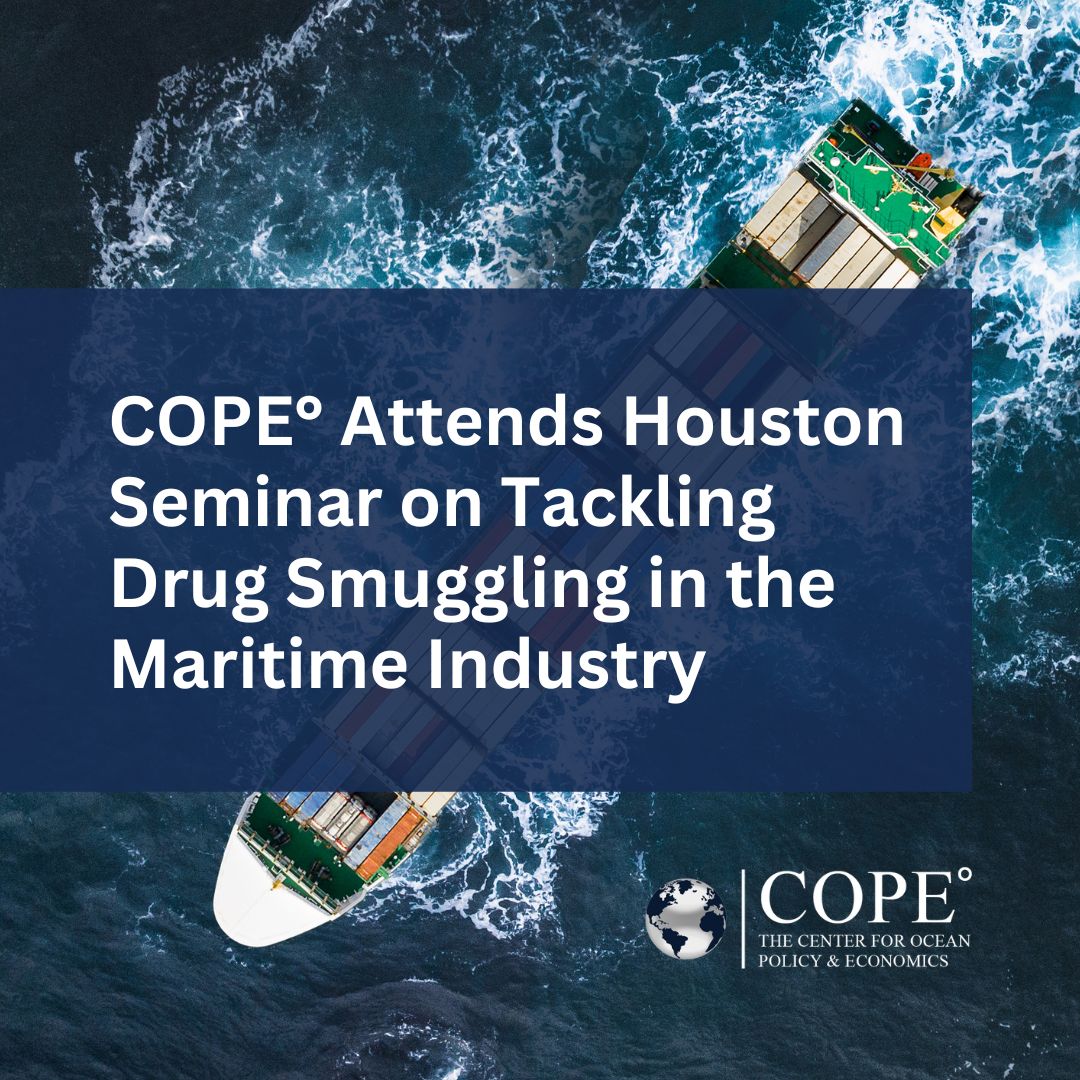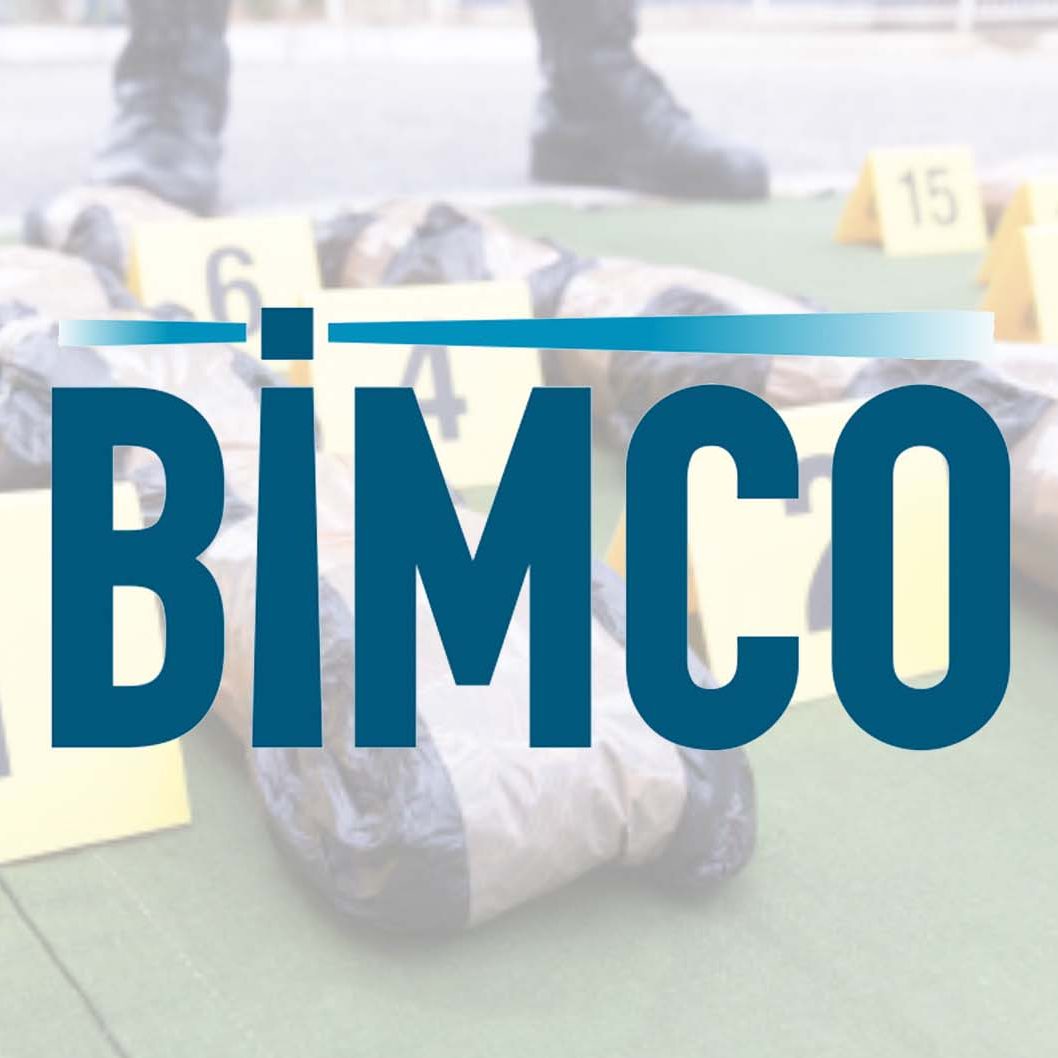Working Group
Peace and Justice
The Unjustified Criminalization of Seafarers
Protecting Seafarers and Societies Against Organized Criminal Networks Specializing in Drug Smuggling
Merchant ships and seafarers are often exploited by smugglers to transport narcotics unknowingly or under coercion. Preventing this abuse helps protect the rights and safety of seafarers who may otherwise be subject to threats, violence, or legal repercussions. It ensures that the maritime industry remains a safe and secure working environment for seafarers.
Preventing smugglers’ abuse of merchant ships and seafarers to smuggle narcotics also brings significant societal benefits, including enhanced public safety, reduced organized crime, protection of seafarers’ rights, improved maritime security, and economic stability. Smuggling of narcotics poses a significant threat to maritime security. By curbing these activities, societies can enhance the security of their coastal waters and international shipping lanes. This supports legitimate trade, strengthens national borders, and protects maritime infrastructure and resources from illicit exploitation.
In some cases, profits from drug smuggling are even used to fund terrorist organizations. By preventing narcotics trafficking, authorities can cut off a significant source of funding for these groups. This helps to combat terrorism and contributes to global efforts to maintain peace and security.
Furthermore, preventing drug smuggling on merchant ships contributes to economic stability and prosperity. It helps maintain the integrity and reputation of ports and shipping lines, attracting legitimate trade and investments. It also reduces the financial burden on governments in terms of healthcare costs, law enforcement, and social welfare, as drug abuse often leads to various societal challenges.
Smuggling narcotics through maritime routes often involves organized criminal networks. By preventing their activities, societies can disrupt and dismantle these criminal networks, reducing their influence and power. This helps to mitigate other criminal activities associated with drug trafficking, such as money laundering, corruption, and violence.
The fight against drug smuggling requires international collaboration and information sharing among nations and this project aims to achieve exactly that. By actively preventing smugglers’ abuse of merchant ships, societies can strengthen partnerships with other countries, foster regional security initiatives, and promote global efforts to combat drug trafficking and transnational organized crime.
Alignment with United Nations’ Sustainable Development Goal (SDG) number 16
Preventing smugglers’ abuse of merchant ships and seafarers to smuggle narcotics supports SDG number 16, which focuses on promoting peace, justice, and strong institutions. Key activities under this SDG include countering illicit financial flows, reducing corruption, strengthening institutions, promoting non-discriminatory laws and policies, and fostering effective and transparent governance.
The most applicable SDG 16 targets include the following:
- Target 16.4 – Reduce illicit financial and arms flows: Smuggling narcotics involves substantial financial transactions, often leading to illicit financial flows. By preventing such abuse, authorities can disrupt these illicit flows, contributing to the goal of reducing illegal financial activities. This helps create a more transparent and accountable financial system, supporting the objectives of SDG 16.4.
- Target 16.5 – Substantially reduce corruption and bribery: Drug smuggling operations often involve corruption, bribery, and the abuse of power. By tackling these illicit activities and preventing the abuse of merchant ships and seafarers, authorities can contribute to reducing corruption and promoting transparency, integrity, and accountability within institutions. This aligns with the aim of SDG 16.5.
- Target 16.A – Strengthen relevant national institutions: To effectively prevent smugglers’ abuse of merchant ships and seafarers, strong institutions are necessary. This includes law enforcement agencies, customs and border control, and judicial systems. By strengthening these institutions, providing necessary resources, and promoting cooperation between nations, authorities can enhance their capacity to combat drug smuggling, supporting SDG 16.A.
- Target 16.B – Promote and enforce non-discriminatory laws and policies: Preventing the abuse of merchant ships and seafarers to smuggle narcotics requires the enforcement of laws and policies that promote justice and fairness. This includes ensuring equal treatment and protection of seafarers’ rights, preventing discrimination, and upholding the rule of law. By doing so, authorities can contribute to the promotion and enforcement of non-discriminatory laws and policies, in line with SDG 16.B.
• Target 16.6 – Develop effective, accountable, and transparent institutions: Combating drug smuggling requires effective and transparent institutions that are accountable to the public. By preventing the abuse of merchant ships and seafarers, authorities can enhance the transparency and accountability of relevant institutions, promoting good governance and contributing to SDG 16.6.
Mission
To protect seafarers and societies against organized criminal networks specializing in drug smuggling.
Organizing the Work
The work will be organized in workstreams. For a start, four workstreams are envisioned, but additional workstreams can certainly be considered:
Workstream 1: Improved threat information sharing
Purpose
To enable law enforcement to effectively counter drug smuggling and inform industry’s security risk assessments and consequent application of appropriate risk mitigation measures.
Objectives
- An effective mechanism for the maritime industry to share information with law enforcement agencies.
- An effective mechanism for law enforcement agencies to share information between domestic and international law enforcement agencies.
- An effective mechanism for law enforcement agencies to share information with the maritime industry.
Workstream 2: Review IMO Resolution FAL.9(34)
Purpose
The FAL resolution is a cornerstone document to the maritime industry and given that the document is more than 15 years old it seems timely to review the document to ensure that it aligns with today’s threats and modern shipping industry concepts.
Workstream 3: Develop IMO guidance to port states
Purpose
The FAL resolution is a cornerstone document to the maritime industry and given that the document is more than 15 years old it seems timely to review the document to ensure that it aligns with today’s threats and modern shipping industry concepts. Drug smuggling concepts have developed over the past 15 years and port states should be guided accordingly. This workstream may be a subset of Workstream 2, since the FAL resolution also contains some very overall guidance to port states.
Workstream 4: Data base of incidents, standardised incident reporting and post-incident reporting
Purpose
Shared knowledge of incidents is necessary to inform relevant law enforcement and industry stakeholders about the threat landscape.
Objectives
- A standardized method of alerting authorities of incidents.
- A standardized format for post-incident reports.
- A concept for a data base which can house incident alerts as well as post-incident reports.
Participants

Jakob Paaske Larsen
Chairperson
Jakob Paaske Larsen
Jakob P. Larsen is the Head of Maritime Safety & Security at BIMCO – the World’s largest association of shipowners with more than 2,100 members globally. Within the scope of his team are all matters related to maritime safety and security, including cyber security.
Jakob’s career began in 1990 in the Danish Navy, where he pursued a seagoing career as navigator and surface warfare officer. Having served in the fleet and subsequently ashore in the Ministry of Defence, Jakob left the Danish Navy in 2010 with the rank Commander to become Maritime Security Officer in BIMCO. After three successful years in BIMCO, he changed over to Nordic Tankers where he expanded his responsibilities over time to become Head of HSSEQ. In 2015 Jakob went to Maersk Line to become Global Security & Marine QA Manager. In parallel with his tenure at Maersk Line Jakob was elected and served two full terms as Chairman of the Security Working Group of the European Community Shipowners’ Associations (ECSA). In 2018, Jakob returned to BIMCO, initially to head the Maritime Security department, and subsequently expanded the scope to also cover maritime safety matters.
Jakob holds several formal qualifications including Master Mariner, Principal Warfare Officer, Joint Command & Staff Course graduate, Company Security Officer/Ship Security Officer, and ISO 9001 lead auditor.

Chris Trelawny
Co-Chairperson
Chris Trelawny
Chris Trelawny was commissioned as Deputy Secretary General of INTERPORTPOLICE on 1 January 2022. In addition to his INTERPORTPOLICE duties, he has worked with the United Nations Office on Drugs and Crime as a consultant developing a regional maritime security strategy for Caribbean countries; with the signatory States to the Djibouti Code of Conduct delivering training on new and emerging threats, information sharing protocols and facilitating the annual high-level meeting; lectured to courses at the World Maritime University; and spoken at a range of international conferences and training events worldwide.
Prior to that, Chris served the International Maritime Organization (IMO) having joined in March 2003 as a maritime security specialist, serving as Head of Section, Senior Deputy Director and, in November 2014, Special Advisor to the Secretary-General on Maritime Security and Facilitation. In 2018 he was appointed to the new post of Chief, Sub-Division for Maritime Development within the Technical Cooperation Division (TCD). From January to October 2020, he was Acting Director of TCD. He left IMO in December 2021.
During his time at IMO, Chris had been responsible for advising and liaising with IMO Member Governments, international organizations and non-governmental organizations on the facilitation of global maritime transport, maritime security, piracy and law enforcement related issues, including the smuggling of migrants by sea. His major projects included writing and delivering the IMO maritime security “Train the Trainer” course and the development of multi-disciplinary, multi-agency projects aimed at finding national and regional solutions for piracy and maritime security challenges. These include the development of the 2009 Djibouti Code of Conduct (signed by 20 countries) aimed at addressing Somalia based piracy, the 2013 Yaoundé Code of Conduct for West and Central Africa, (signed by 25 countries) and, in January 2017, the Jeddah Amendment to the Djibouti Code of Conduct (signed by 16 countries) that widens the scope of the original code to address a range of maritime crimes. He was also responsible for conducting security needs assessment missions to IMO Member States, including missions in support of the UN Security Council Counter Terrorism Executive Directorate. His published work includes a chapter in the IMLI Treatise on Global Ocean Governance Volume III and numerous articles in international journals. He served as secretary to the IMO Facilitation Committee which addresses border control issues and had management oversight of the IMO Women in Maritime programme. He lectured regularly to the World Maritime University and the IMO International Maritime Law Institute.
Chris has also worked closely with navies on issues relating to maritime security operations, counter proliferation and civil/military cooperation; and with other agencies on issues such as security of the supply chain. In 2014 Chris was awarded the UK Merchant Navy Medal for “services to counter-piracy strategy and to Royal Navy/Merchant Navy liaison”. In 2016 he was awarded the United Kingdom Marine Society’s Thomas Grey Medal and the United States International Police and Public Safety 9/11 Medal – Maritime for his significant contribution to maritime security.
Before joining IMO, Chris spent six years with the International Civil Aviation Organization (ICAO) as the Aviation Security Training Officer. In addition to developing and delivering training courses, he was responsible for conducting assessments of Contracting Governments compliance with ICAO Annex 17 – Security and was a qualified security auditor for both ICAO and the European Civil Aviation Conference. Prior to that, Chris served for four years with the UK Government as an aviation security inspector, including the introduction of the UK air cargo security programme; and eight years with HM Customs in law enforcement roles, largely at Heathrow Airport but also at sea on HM Customs Cutters.
Chris served for 30 years as an officer in the Royal Naval Reserve and is a Younger Brother of Trinity House.

Eric R. Dawicki
Co-Chairperson
Eric R. Dawicki
Eric R. Dawicki is an internationally respected maritime expert who has demonstrated leadership and industry-wide successes in the areas of maritime transportation, safety, security, and regulatory affairs, while also leading global advancements in maritime policy, education and training, and economic development.
A Master of Public Administration recipient with Concentrations in Public Affairs from American University in Washington, D.C., President Dawicki has led a distinguished career. With more than 33 years of experience in the maritime industry, his background combines policy and practical expertise with both theoretical policy development and real-world experience. This includes serving in the United States Coast Guard Reserve and the United States Merchant Marine, holding various shipboard positions, ship management specializing in LNG tanker operations, and providing consultancy to private shipping companies, port facilities and governments around the world on domestic and international regulatory instrument compliance.
Presently serving as President of Northeast Maritime Institute (NMI), Dawicki has developed it into the first private maritime college in the history of the United States, offering Maritime Science degrees and continuing education and comprehensive digital learning programs. This includes the development of innovative online learning simulators, training and certification platforms for mariners on a global scale. NMI also serves as a direct support to entities worldwide through the Center for Ocean Policy and Economics (COPE). In addition, Mr. Dawicki concurrently serves as Co-Founder, President and CEO of the Commonwealth of Dominica Maritime Registry, which has an international network of 28 regional offices and close to 400 vessels, many of which operate across the Caribbean, Mediterranean, Asian and Black Sea.
President Dawicki’s additional accomplishments include membership to the United States National Maritime Security Advisory Committee during the Obama and Bush Administrations and has served as the Lead Delegate to the United Nations' International Maritime Organization representing both the United States and the Commonwealth of Dominica and was both on the Board of Governors and Executive Governor to the UN’s World Maritime University, chairing it’s thirty-year sustainability plan, which is now successfully operating.

Capt. Kuba Szymanski
Co-Chairperson
Capt. Kuba Szymanski
Captain Kuba Szymanski is the Secretary General for InterManager, the international trade association for the ship and crew management sector.
He began his sea career in 1985. Graduating from the Maritime University of Szczecin with a Master’s Degree, he became a deck officer with Dorchester Maritime Limited Isle of Man where he sailed gas/chemical/product tankers, reaching his first command as a Master in 1999. He continues to maintain his Captain’s Licence.
In order to support his managerial skills, he attended Lloyds Academy and obtained a Certificate in Ship Superintendence, before gaining an MBA at the International Business School, Isle of Man and John Moores University (JMU) Liverpool.
In his roles ashore, he worked as a Marine Superintendent, HSEQ Manager, Fleet Manager and General Manager. He was appointed Secretary General of InterManager in January 2010.
Through his role with InterManager, Capt Szymanski has participated in many industry-wide projects, including the production of international shipping industry Key Performance Indicators (KPI), the Save Our Seafarers campaign, and the Martha Project which focussed on seafarer fatigue at sea. He currently chairs the Human Element Industry Group (HEIG) Enclosed Space Committee. During the Covid-19 pandemic Capt Szymanski represented InterManager on a number of key maritime panels, supporting the health and well-being of seafarers around the world and helping to ensure business continuity for the global supply chain.
In addition to being a member of the Maritime Professional Council of the UK, Capt Szymanski is a fellow of the Nautical Institute and a member of its Executive Board. In 2011 he joined the TK Foundation, which supports non-profit maritime and youth programs, and he currently chairs its HR and Renumeration Committee.
Capt Szymanski is a familiar face on the international maritime conference circuit and also lectures on ship management at the International Business School, Isle of Man. In July 2018 he was awarded an Honorary Doctorate by Solent Southampton University in recognition of his contribution to the maritime industry.
In April 2022 Capt Szymanski took up the additional role of Chair of the Board of the 200-year-old Seafarers Hospital Society (SHS), the UK’s oldest maritime charity. SHS provides a range of health and welfare services to UK-based seafarers and their dependants.
In his leisure time, Kuba is a keen yachtsman and races sails his Beneteau First 40.7 competitively around Europe, mostly double or single handed. He is married with a son who is also a seafarer.
Get Involved
Looking to get involved in this Working Group? Please fill out the following form to request participation in the Working Group.



